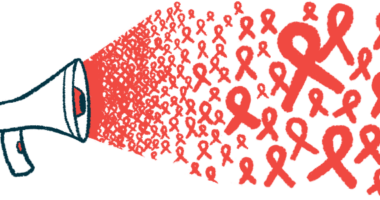A Surprise Course in Life Support 101

“Love the One You’re With.”
In his 1970 release, Stephen Stills advised folks to show carnal affection for whomever fate paired them with. If the prurient intent is replaced with agape treatment, and the noun is made plural, the lyric becomes descriptive of the ideal support group.
“Love the Ones You’re With.”
It took an evolution in my thinking for that realization to take hold.
When I grudgingly attended my first ALS support group, I had minimal expectations. I was anticipating a “misery loves company” assembly of woe-is-me-ers. Convinced that the output of the session would be the sharing of bitter pills, fears, and anxious moments, I mostly muted the content. I dared not allow any anecdotal negativity to diminish my resolve to rise above the slings and arrows of ALS. Of course a self-fulfilling prophecy resulted. I took away nothing positive.
In fact, my decision to show up at all was a silent favor of sorts to the event’s coordinator. She had been a tenacious advocate of mine in securing loaner assistive equipment, patient services, and home-modification quotes. I reasoned that any bump in meeting attendance, however temporary, might be welcome. Privately, I committed myself to three gatherings.
On the occasion of the third, my mind changed. The meeting began like the two prior ones. Pleasantries were exchanged, and beverages and light snacks were offered. A discussion about home safety ensued. One woman shared her story of a recent fall, except with a twist. Months before her spill, she had proactively contacted her local fire station to introduce herself as an individual with potential special needs. It then was the simple matter of a phone call for two firefighters to be quickly dispatched to gently return her to a wheelchair, no worse for wear.
That shared nugget was enough to entice me to join the group at least one more time. Perhaps additional pearls of wisdom might be forthcoming. In classic consumerism fashion, I judged the “what’s in it for me” to be worth the investment.
My fourth go around, involving the “united we stand” approach, proceeded as had the others, albeit my attention was far keener. Enough so that when the conversation wandered to the difficulty of rising from a seated position, I offered input. I explained that a helpful factor was having the hips higher than the knees. For that reason, whenever safely possible, I would stack lightweight chairs to achieve a height differential.
As luck would have it, some folding chairs were in the room. I demonstrated the concept. Several non-wheelchair-bound people successfully tried it. One man exclaimed, “Thank you so much, I’m so glad you were here!”
Suddenly, the ultimate utility of a support group became readily apparent. They are more than a forum for the shared outpouring of misery and effusive therapeutic empathy. They are more than an egocentric pursuit. Ideally, they can be a transparent, service oriented, give and take, resulting in a synergistic greatest good for the greatest number.
When we walk through the doors of a support group meeting, we are admitting a horrific commonality. But however unintentionally, we’re also self-identifying as a survivor. Regardless of where we stand in the ALS journey, we are still here. That doesn’t happen without a plethora of harrowing moments and accompanying situational countermeasures. Many are novel. Some are brilliant. All are inspirationally life-sustaining.
These “best practice” experiences are veritable gold for our fellow ALS victims. They should unreservedly be shared. Perhaps they’ll be immediately put to use. If not, they will be mentally filed for future retrieval. Either way, they are priceless.
Subsequent to my epiphany meeting, I was a vigorous support group participant. On topics ranging from my success in getting uninterrupted home healthcare covered by Medicare to my discovery of spray supplements, I freely shared. In return, my arsenal of anti-ALS weaponry was substantially enlarged.
Of course, given the current environment of social distancing, folks are discouraged from group gatherings. Thankfully, virtual support-group-like benefits can still be found. ALS News Today operates a forum affording exchange in many areas of interest. Likewise, Facebook has a number of ALS groups, including:
- ALS Natural Healing
- The Brighter Side of ALS
- ALS Naturally
- Christians with ALS
- ALS 2020
- No More Excuses! ALS Watch Dog Group
- Band of Bellinas
- Life with HSP, PLS & ALS
- Hope NOW for ALS
- Whole body healing for ALS
In any case, the key is involvement with the proper mindset. To adapt President John F. Kennedy’s 1961 inaugural address, ask not what your support group can do for you — ask what you can do for your support group.
By the way, I ended up introducing myself to the local fire station. They have come to my aid multiple times. Thank you, support group!
***
Note: ALS News Today is strictly a news and information website about the disease. It does not provide medical advice, diagnosis, or treatment. This content is not intended to be a substitute for professional medical advice, diagnosis, or treatment. Always seek the advice of your physician or other qualified health provider with any questions you may have regarding a medical condition. Never disregard professional medical advice or delay in seeking it because of something you have read on this website. The opinions expressed in this column are not those of ALS News Today or its parent company, Bionews, and are intended to spark discussion about issues pertaining to ALS.







Leave a comment
Fill in the required fields to post. Your email address will not be published.